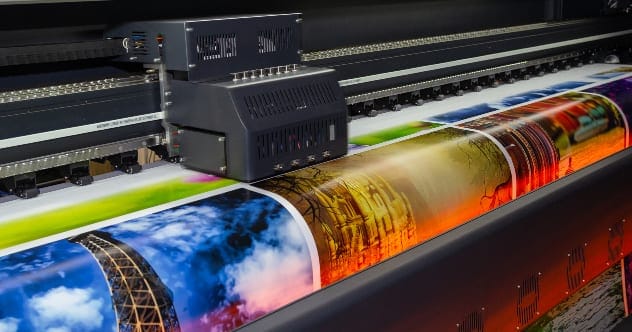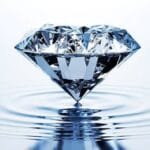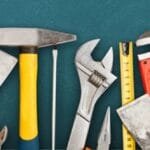You’re probably reading this on a phone, tablet, or computer, inside a sturdy building, maybe wearing comfy clothes, and perhaps thinking about that next snack in the fridge. So many amazing technologies keep us safe, comfortable, and entertained. It’s clear that humans really shine when it comes to inventing!
We might not be the fastest or strongest animals, but we’re the best at dreaming up ways to make life better. In just 10,000 years—a tiny blip in Earth’s timeline—we’ve gone from chasing mammoths with sticks to having drones deliver cookies. And while delivered cookies are great, some inventions have changed us and our world even more. Here are 10 of the best.
Time
Time is both something we found and something we made up. Time itself is a natural part of the universe, like length, width, and height. But time as a way to measure things—using hours, minutes, and seconds—is something we invented. And it’s a pretty important invention.
Our time system, with 24 hours divided into 60 minutes each, and those into 60 seconds, comes from a mix of Egyptian, Babylonian, and Greek ideas. It has helped us build our modern way of life, where we make things on a schedule.
Before we had standard time, things like cooking or making drinks were based on how things looked outside, like where the sun was. Timekeeping let us do things at the exact right moment.
Time gives us precision. Farming, medicine, engineering, and computers all need to be done exactly right. Imagine trying to plan a surgery by saying, ‘Let’s do it the day after the moon is halfway big again, when the sun has gone down a bit but not too much.’ It would be tough to schedule anything!
Space Travel
So far, space travel has given us cool science facts and big moments of pride. But experts think space travel will give us even more in the future. It might even be the biggest thing we ever do!
If we look at how we’ve grown and used energy in the past, we’re growing fast and will soon need more resources than Earth can give us. That’s where other planets come in. People talk more and more about living on Mars, and some mention Venus, Mercury, and the Moon, too. If we keep using more and more energy, we might need all those places as new homes for humans.
Machine Learning
Machine learning is becoming a big deal, and it’s changing our lives a lot. We know computers can hold and sort tons of information. Machine learning is when computers use that info to make new info. Computers look at trends, learn on their own, and come up with their own ideas.
Right now, we use machine learning for things like Google Maps and delivery companies that find the best routes. It also helps with things like recognizing images. But the best is yet to come. Machine learning is a key part of making artificial intelligence. Soon, it could help doctors diagnose patients, create super-smart digital helpers, and build robots that can do a lot.
Math
Math has helped us a lot, and it’s hard to say enough good things about it. Almost every part of our world has been made better or created by math. Without math, we wouldn’t have measuring, engineering, or physics. And that means no medicine, buildings, advanced technology, or computers.
Like time, math is both something we found and something we invented. It’s made of rules that are always true, but we’re the ones who figured them out. Its universal nature might be how we talk to aliens one day. It might sound crazy, but joining a bigger group of space civilizations could be our future. If it is, we won’t use English or Spanish; we’ll use math. Aliens might not know Shakespeare, but they’ll know that E=mc², and that’s a good place to start.
The Printing Press
The printing press is a classic choice for this list. Gutenberg’s printing press wasn’t the first machine to make books (someone in China did that earlier), but it was the easiest to use and cheapest to make. The printing press made it possible to make lots of books quickly, which helped us get out of the Dark Ages.
The printing press let information spread to more people and helped more regular folks learn to read. This freed knowledge from just the rich and powerful, which led to changes in politics and even revolutions. It also let scientists and mathematicians share their ideas, leading to lots of teamwork and new discoveries during the European Renaissance.
The Internet
If knowing things is power, then we’re more powerful than ever—at least when it comes to getting information. The internet took the idea of spreading information from the printing press and made it way bigger. Now, about 50-70% of the world can learn almost anything whenever they want.
Even though you might see people wasting time online, the chance to learn is still there, and that’s amazing. Right now, I have tabs open on articles about cool science stuff, myths, and art techniques. Don’t know what those are? Thanks to the internet, you can find out in seconds.
Sanitation
About 200 years ago, people in the U.S. lived to be only 35-40 years old. Today, it’s 75-80. That’s like doubling how long we live in just a few generations. You might think that’s because of things like antibiotics and vaccines (which are great), but that’s only part of the story. The biggest increase in how long we live happened in the late 1800s and early 1900s, before those big medical inventions. That increase was mostly because of better sanitation.
We started caring more about clean water, safe food, getting rid of sewage, collecting garbage, washing our hands, cleaning things, and good air quality. This led to way fewer diseases, which started what we call the First Public Health Revolution. These ideas are spreading around the world, and people are living longer in almost every country, thanks to sanitation.
Mythology
Every society on Earth has its own mythology. Whether it’s people living in the jungle or huge cities, we all have stories and myths. The oldest known myth is the Epic of Gilgamesh, about a king from Mesopotamia, and it’s 3,000-4,000 years old. After that, we have lots of stories about gods, heroes, and legends from the Greeks, Norse, Egyptians, Hindus, and many other cultures.
Mythology helps us in many ways, but mostly it teaches us things and gives us meaning. Our minds are good at finding patterns and using them to understand the world, and mythology is our minds working at their best. The best myths are universal and powerful, and lots of people find their purpose in religion and mythology. After all, what’s the point of living a long life with lots of information and technology if it doesn’t have meaning?
The Scientific Method
While mythology lets us dream big, science keeps us grounded. Science isn’t just a bunch of facts and technology; it’s a way of learning. We call it the scientific method, and it’s about asking questions, guessing the answers, testing them, and changing our guesses based on what we find.
It’s that simple! We do it every day without even thinking about it. But using this method in a standard way has changed the world. We gather information, test it, and that leads us to the truth, whether it’s about your favorite breakfast or universal rules like the Planck constant. The scientific method is so important to our world that it might be the best invention ever. Well, except for…
Dessert
Hear me out! It’s easy to talk about inventions that make our technology, communication, and search for meaning better. But there’s one part of life that deserves more credit: joy. That’s where dessert comes in.
Whenever we first had dessert, it was a big step for humans. Usually, animals hunt and eat just to survive. But one of our ancestors took a moment to relax, saw they had enough, and started eating just for the fun of it. That’s what dessert still does today. We have cake for birthdays, ice cream after a fun day, and candy for kids who behave. Dessert is the reward for all our hard work. The day we started eating dessert is the day we went from just surviving to really living.
What do you think about these inventions? Which one do you think is the most important? Leave your comment below!










